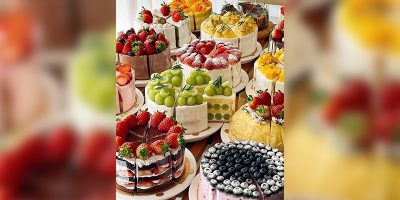In the ever-evolving world of culinary arts, the quest for inclusive dessert options has led to the rise of vegan and eggless cakes. While at a glance, they might seem similar, especially in their effort to cater to specific dietary preferences, the distinctions between them run deep, touching upon ethical considerations, health aspects, and, of course, their culinary compositions. This blog post aims to unravel the nuances that set vegan and eggless cakes apart, providing a comprehensive understanding for all baking enthusiasts and consumers alike.
Understanding the Basics
Eggless Cake: As the name suggests, eggless cakes are simply traditional cakes made without the use of eggs. Eggs are commonly used in baking for their properties, which add moisture, bind ingredients together, and help with leavening. In eggless cakes, alternatives like yogurt, applesauce, mashed bananas, or commercially available egg replacers are used to achieve similar results.
Vegan Cake: Vegan cakes take the concept a step further by eliminating all animal-derived ingredients. This means no eggs, dairy (milk, butter), or any other products sourced from animals. Vegan baking often employs a variety of plant-based substitutes to replicate the textures and flavors traditionally provided by animal products.
Ingredient Breakdown
Eggless Cake Ingredients:
- Flour
- Sugar
- Leavening agents (baking soda or baking powder)
- Fat (butter or oil)
- Egg substitutes (yogurt, applesauce, vinegar with baking soda, etc.)
- Milk (dairy or plant-based)
Vegan Cake Ingredients:
- Flour (ensure it’s not enriched with animal-derived vitamins)
- Sugar (processed without bone char)
- Leavening agents (baking soda or baking powder)
- Fat (plant-based oils or vegan butter)
- Plant-based milk (almond, soy, oat, etc.)
- Binders and moisteners (flaxseed meal, mashed bananas, avocados, vegan yogurt, etc.)
Preparation and Baking
The preparation methods for both eggless and vegan cakes may closely resemble those of traditional baking, but the key lies in the careful selection and combination of substitutes to achieve the desired consistency, rise, and texture. Vegan baking often requires a bit more creativity and experimentation due to the broader range of ingredients excluded from recipes.
Taste and Texture
Eggless Cakes: The absence of eggs in a cake can sometimes result in a denser texture, but with the right substitutes, eggless cakes can be just as fluffy and moist as their traditional counterparts. The taste is often indistinguishable, particularly if dairy products like milk and butter are still used.
Vegan Cakes: Vegan cakes can vary greatly in texture and flavour depending on the ingredients used. Some might find them slightly denser or less moist than traditional cakes, but modern recipes and high-quality substitutes have allowed vegan cakes to reach remarkable levels of deliciousness and texture that can rival any traditional cake.
Health Considerations
Both vegan and eggless cakes offer certain health benefits, primarily in terms of lower cholesterol levels since eggs are a significant source of dietary cholesterol. Vegan cakes might have an edge in terms of heart health due to the complete absence of animal fats and the inclusion of more plant-based ingredients, which can contribute to a higher intake of dietary fiber and a lower intake of saturated fats.
Ethical and Environmental Implications
Vegan cakes not only cater to dietary restrictions but also align with ethical and environmental principles. By eschewing all animal-derived ingredients, they offer a sustainable and cruelty-free alternative, addressing concerns about animal welfare and the environmental impact of animal farming.
While eggless and vegan cakes may seem like mere variations of traditional desserts, their differences highlight the diversity and adaptability of baking to meet dietary needs and ethical choices. Whether you lean towards eggless baking for health reasons or embrace vegan cakes for ethical and environmental considerations, both paths offer a rich canvas for culinary creativity and inclusivity.
In the end, the choice between vegan and eggless cakes boils down to personal preferences, dietary restrictions, and ethical values. With the wealth of substitutes and innovative recipes available today, indulging in a slice of cake no longer requires compromise on taste, texture, or principle.
As the culinary world continues to evolve, the possibilities for inclusive, delicious desserts are boundless, inviting everyone to the table to enjoy Bakingo cakes, regardless of their dietary choices.





